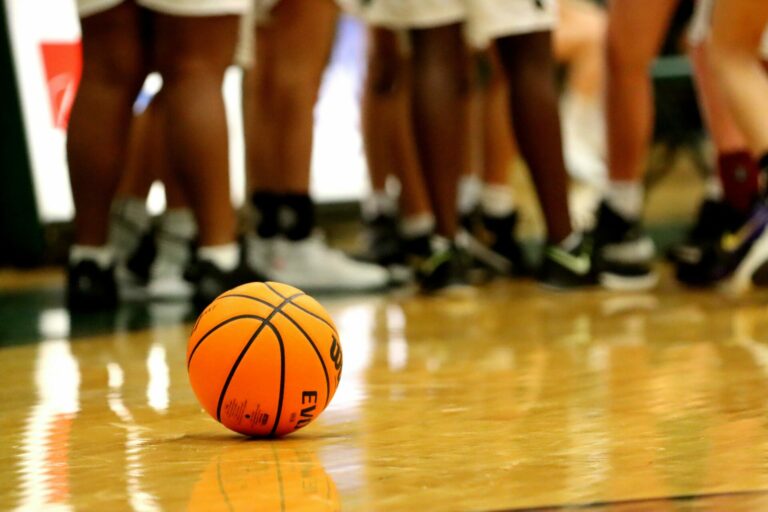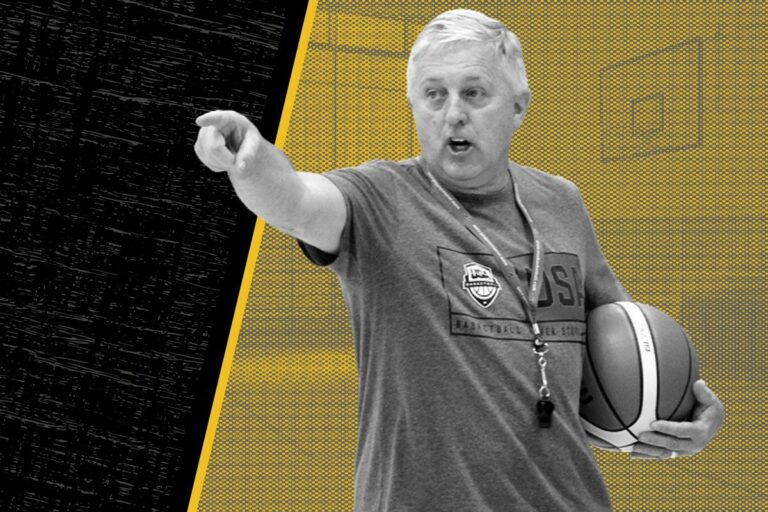- Books can help any youth coach or educator refine their leadership and program-building philosophy.
- There’s more to coaching than just gameplans and strategizing.
- Electives and extracurriculars provide some of the best opportunities in schools for students to practice deeper learning.
The best leadership books for coaches
This essential list of the best leadership books will help any youth coach or educator refine their leadership and program-building philosophy and get that extra edge on the competition.
Read on for program-building advice from coaching legends like Tony Dungy, insight from elite athletes like Andre Iguodala and Abby Wambach, cutting-edge research from education scholars and organizational psychology experts—and even life lessons from the former football coach who shaped Silicon Valley.
1. The Soul of a Team (2019)
Tony Dungy and Nathan Whitaker
Key Takeaway: At their best, the SOUL principles go beyond the game to explain how to develop a purposeful mission. Without an overarching vision, teams can become so dysfunctional that the strengths of individuals fade away. When teammates have a deeper sense of accountability to each other and to themselves, they will perform at a higher level.
“What separates the truly great teams from the mediocre ones? Four simple yet highly effective principles: selflessness, ownership, unity, and larger purpose.”
Drawing on his 40-year career, Pro Football Hall of Fame coach Tony Dungy reflects on the qualities that every great team shares.
Dungy believes that any standout team—whether that’s the Super Bowl-winning Indianapolis Colts, or a high school district champion—must have SOUL. The acronym SOUL stands for Selflessness, Ownership, Unity, and Larger Purpose. Through the story of a fictional football team, the Orlando Vipers, Dungy illustrates how the SOUL principles can turn a losing team into a cohesive and successful one.
Whether it’s through locker room conduct or on-field performance, the SOUL principles reinvigorate and inspire everyone on the team. By emphasizing the power of communication and team building, The Soul of a Team is one of the best leadership books for any leader, as the lessons reach far beyond the football field.
2. The Coffee Bean (2019)
Jon Gordon and Damon West
Key Takeaway: No good will come from letting the pains of your past define you. That’s why a great leader reminds their students that any environment can inspire growth—and that anyone has the power to make this shift in perspective. The metaphor of the coffee bean reminds us that even the direst of circumstances can become a positive and motivating force with the right outlook.
“He told himself that failure is not a definition. It’s just an event. Just because you fail doesn’t mean you are a failure. It’s just a situation to overcome and transform. And it will make you stronger if you are willing to learn and grow from it.”
Best-selling author and coaching consultant, Jon Gordon teams up with co-author Damon West, a former college quarterback whose life was derailed by drug addiction, to tell this important story. The authors illustrate the power of positive thinking to transform one’s path and make the best out of even the darkest circumstances.
The story follows Abe, a young man who struggles with the debilitating pressures of his day-to-day life. Explained by a mentor to Abe, the coffee bean represents one of three possible responses to a negative situation: changing the environment itself into something new and meaningful.
With endorsements from leadership luminaries like national champion coach Dabo Swinney of Clemson University Football, The Coffee Bean reminds us that when it comes to developing important qualities like resilience, servant leadership, and accountability, we must look inward, which makes this one of the best leadership books you can read.
3. Self as Coach, Self as Leader: Developing the Best in You to Develop the Best in Others (2019)
Pamela McLean
Key Takeaway: Leading effectively is all about being able to accurately, yet supportively, identify a mentee’s strengths and weaknesses. But before a leader can do that for others, they must be able to identify their own. In short—by learning more about themselves, leaders can better understand the strengths and weaknesses of others.
“We grow our capacity to operate masterfully by first gaining a true sense of the self we are living in.”
Pamela McLean, the CEO and founder of the Hudson Institute of Coaching, advocates for a leadership style grounded in self-awareness. With a background in clinical psychology and over 30 years working with corporate leaders and high-performing professionals, McClean explains that a successful leader must thoughtfully develop their best qualities and values.
A great leader must critically evaluate their abilities, McClean argues, and put in the work to improve; they must continue to strengthen their best qualities and strive to improve their weaknesses. Self-reflection will help a good leader understand the challenges and individuality of the people around them, and create an empathy-based relationship.
As McClean writes in her opening lines,
“The best coaches are leaders.
The best leaders are coaches.”
A leader is more than someone who makes decisions and guides the way—they also have the potential to be important mentors. In order to be truly effective, leaders of all kinds must embrace this role of “coach” in their identity.
4. Trillion Dollar Coach (2019)
Eric Schmidt, Jonathan Rosenberg, and Alan Eagle
Key Takeaway: Great leaders are more than just brilliant strategists and experts in their field—they’re excellent problem solvers. That’s why the best leaders are those who teach dynamic and evolving problem-solving skills. Campbell teaches us that leaders can be honest and push their mentees without being cruel or overly critical.
“Not what happened and who’s to blame, but what are we going to do about it?”
At the heart of the Silicon Valley tech boom, there was a football coach named Bill Campbell, helping to create trillions of dollars of market value at companies like Apple, Google, and Facebook. Trillion Dollar Coach tells Campbell’s story, showing how he was a legend in more than one field.
Number four on our list of best leadership books is a case study of a man, who went from football coach, to a multimillionaire and an advisor to leaders like Steve Jobs, showing us that coaching is necessary in almost any walk of life.
Bill Campbell was a tough, but ultimately fair mentor. He was never afraid to express his opinions because he knew his honesty was essential to the success of his mentee’s businesses.
5. Range (2019)
David Epstein
Key Takeaway: By harnessing knowledge from many facets of their lives, students will be equipped to handle the challenges of a rapidly changing and globalizing world. Encourage students to step out of their comfort zones and try their hand at activities outside their “natural” abilities.
As a leader, don’t be afraid to acknowledge the strengths of the generalists as well as the specialists in your program.
“If you want to know if your kid is going to be fast, the best genetic test right now is a stopwatch. Take him to the playground and have him face the other kids.”
David Epstein, the author of the New York Times Bestseller, The Sports Gene, introduces us to the concept of the “generalist” in his newest book Range. While “specialists” find one talent and fully dedicate themselves to perfecting it, Epstein argues, generalists have a wide range of skills.
For years, we as a society believed that someone must dedicate a set amount of hours (10,000 according to Malcolm Gladwell’s influential book, Outliers) to an activity in order to become a master. In fact, we even go so far as to belittle kids who don’t find their talents at an early age.
Even in a world that proclaims to value specialists, generalists can excel; generalists are nimble thinkers and creative problem solvers. They are able to make connections between their many talents and interests, and find a way to thrive in many environments.
The real world is complex and challenging—and becoming increasingly more so. There aren’t always right answers. It isn’t always clear what the best course of action is to take. Generalists thrive in this more uncertain environment and thus can contribute to any team.
6. The Sixth Man: A Memoir (2019)
Andre Iguodala
Key Takeaway: Behind even the most talented individual is an intense personal struggle. While they may be a dominant athlete, an exceptional performer, or a visionary artist, they could also be dealing with personal or societal issues that are holding them back from their full potential. A great coach or educator must be aware of the challenges their students face and act as an advocate and champion where they can.
“Basketball is often for people who have no other choice. If you genuinely have other options, you wouldn’t go as far and face as much. You play for fun, but once it gets serious, once it becomes life-or-death, most people will, if they can, find something a little more stable and a little less critical to do with their lives.”
Andre Iguodala is a leader on and off the basketball court. As a member of the Golden State Warriors, Iguodala appeared in five consecutive NBA finals, even taking home the NBA Finals MVP award in 2015.
Iguodala’s journey to stardom was hardly straightforward, as his childhood was filled with hardships. His memoir is a story about basketball, but it’s also a story about growing up black in America. Through his own eyes, we see Iguodala’s rise to success and the adversity he faced getting there.
We’d love to imagine that talented people are destined to make it, but Iguodala reminds us that systemic factors (educational opportunity, in particular) complicate this dream. Despite his setbacks, Iguodala’s story is a testimony to perseverance and is a nuanced portrait of a dominant athlete and his path to success, which makes this one of the best leadership books available now.
7. Helping People Change: Coaching with Compassion for Lifelong Learning and Growth (2019)
Richard Boyatzis, Melvin L. Smith, Ellen Van Oosten
Key Takeaway: Most people don’t thrive under micromanagement. While solving a problem for a student might provide a quick fix, it will ultimately prevent that student from being able to manage their problems independently.
Rather than solving problems for a student, a good leader should always work towards equipping their students with the tools they need to become confident and self-sufficient.
“To help other people, we have to focus on them, not on our vision of how we think things should be. We have to understand them. To understand them, we have to talk to them and discover their views of the world, their situation, and how they feel. It’s true—to effectively coach or help anyone, we need to find out what the other person is feeling as well as thinking.”
Behavioral scientists Richard Boyatzis, Melvin L. Smith, and Ellen Van Oosten stress the importance of “soft skills” in leadership in Helping People Change.
Many leaders spend their energy trying to “fix” other people, the authors argue. While it’s tempting to point out every little mistake they make, the authors warn that this approach will alienate the people you want to help.
The authors of Helping People Change advocate for a style of leadership that uses the power of compassion to inspire the best in people. Backed up by MRI scans of functioning brains, the authors discuss the powerful link between emotion and productivity. Rather than “fixing” someone, good leaders help them to see the best version of themselves, and equip them with the tools to get there.
8. In Search of Deeper Learning (2019)
Jal Mehta & Sarah Fine
Key Takeaway: Electives and extracurriculars provide some of the best opportunities in schools for students to practice deeper learning. Though we often dismiss these programs as secondary to core classes, they actually give students the ability to practice real-world problem solving, teamwork, creative thinking, and leadership skills.
Think of these programs as a venue for students to practice deeper learning—especially for those students who might be disengaged or struggling in their core classes.
“Low-income students are three times as likely as their non-poor counterparts to participate in neither sports nor clubs.”
In Search of Deeper Learning offers a high-level view of secondary education in the United States. Authors Jal Mehta and Sarah Fine ventured into hundreds of classrooms all over the country to better understand which teaching methods best engage students, and which fall flat.
Deeper learning, according to the authors, provides students with lifelong knowledge, not just answers to tests, a coaching tip that has been repeated before. Critical thinking and collaboration with peers are skills that students can use long after they graduate, and Mehta and Fine argue that teachers and classrooms that promote deeper learning will see better achievement in their students in the short and long term.
Mehta and Fine explain that there isn’t a single right answer to education. While we can observe at least some deeper learning taking place in every classroom we visit, we can see that the best educators tailor their approach to the students and community they serve.
9. Wolfpack (2019)
Abby Wambach
Key Takeaway: More than any technical skill, courage is one of the most valuable lessons a student can learn through extracurricular activities. Abby Wambach learned to take charge of her life through her career and is urging young women to do the same, no matter what career they enter.
“We have never been Little Red Riding Hood. We Are the Wolves. We must wander off the path and blaze a new one: together.”
Abby Wambach was a record-breaking soccer player for the U.S. Women’s National Soccer Team; As co-captain, she led her team to two World Cup championships. Now in retirement, she works to inspire young women everywhere, on and off the pitch. In Wolfpack, Wambach expands on her commencement speech at Barnard College, urging us to unite and stand up against society’s old, unjust rules.
This book is a celebration of Wambach’s legendary accomplishments and a call to action. After an uphill battle for equal pay for the women’s team, and to be recognized in the National Soccer Hall of Fame, Abby Wambach reaches out to all women—calling for courage and unity between women in fields where there is still gender inequity.
In this powerful and short read, Wambach reflects not only on her experience as a leader and champion on the field, but also how she has learned to use her position to advocate for change off the field.
Recommended by world-class athletes like Serena Williams, this book empowers students and coaches to advocate for themselves and their teammates, reminding us that courage is more important than any athletic skill.
10. The Infinite Game (2019)
Simon Sinek
Key Takeaway: Even in activities that seem finite, there is still value in teaching infinite life skills. Helping your students create just causes for the season, for example, will instill a greater sense of purpose into their pursuit. Using the framework of the infinite game, your students will have the opportunity to become more forward-thinking leaders.
“To ask, ‘What’s best for me’ is finite thinking. To ask, ‘What’s best for us’ is infinite thinking.”
Most games we think of have a clearly defined end. We know that a football game has four quarters. Chess eventually leads to checkmate. These activities have strict rules and parameters that we can define and explain.
But Simon Sinek (author of bestselling books Leaders Eat Last and Start with Why) argues there’s a different kind of game that’s even more common in the real world—the infinite game.
Politics, business, and even life itself are infinite games. Unlike an activity that has set rules and lasts a few hours, the infinite game doesn’t have clear winners or losers. In order to play the infinite game, you must develop your own vision for success. It’s more individual, more personal, and there’s much more at stake.
Thinking in terms of the infinite game also transforms the way we view our successes and our failures—not everything is as simple as winning and losing. There is no such thing as “winning” in relationships. There is no such thing as “winning” in collaboration. In order to truly succeed, Sinek says that 21st century leaders must take a broader view of what success is and can be. Understanding the infinite game is a great first step.
For other helpful resources to become a better leader and get a leg up on your competition, subscribe to the Leading Edge newsletter.











